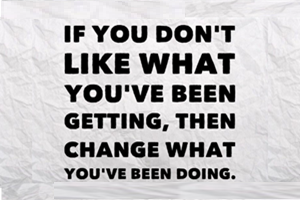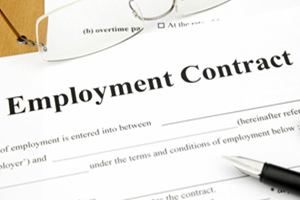In the May 19, 2020 Ask The Headhunter Newsletter a reader grapples with the biggest weakness and with trick questions.
Question
It just happened again. An interviewer asked me one of those trick questions. “What is your biggest weakness?” I actually researched this one. There are all kinds of recommended answers you can memorize. It’s also true that it might be an honest question to get you to talk about yourself, or it might be a trick and they’re looking for some particular kind of answer. I stopped trying to psych this out. But I would like to know what you think.
Nick’s Reply
I don’t believe in rehearsed or “canned” answers to interview questions. Every candidate, manager, job, company and situation is different. Each requires an honest answer to sincere, relevant questions.
That’s assuming the company and the manager are honest, sincere people who ask questions that actually assess your fitness for the job. But we all know that many employers rely on a list of prepared interview questions that they ask so routinely, you wonder why. Such interviews feel stiff and there’s no real conversation going on about the job or how you would do it. Many of these questions fall into a category I call The Top 10 Stupid Interview Questions. (Disclosure: There are more than 10!)
Your biggest weakness
I don’t believe in canned questions in job interviews. But, there’s one Top 10 interview question that really irritates me because it’s so loaded, so stupid and so common that it’s worth discussing. And that’s the question you’re raising here:
What is your biggest weakness?
The clever rationalizations behind this question are myriad. I’ve heard every explanation there is for asking it. My favorite: “It’s a good open-ended question that will tell you lots about a job applicant.”
Give me a break. It yields no more than asking what animal the applicant would like to be. If the question was ever legitimate and sincere, it’s been worn out from overuse. When some wag came up with the best answer I’ve ever heard – “Chocolate!” – it was time to stop asking it.
I don’t want to suggest an answer to this question, because there is no single answer. But, I’d like to discuss why I think the idea of “weakness” is worthless to an employer, and perhaps that will change your perspective about interviews in general.
What weakness?
This question doesn’t show up just in job interviews. A prospective client once asked me what my biggest weakness is. This is how I answered it – as honestly as I could.
There are a million things I can’t do, but they don’t reveal any weakness. Weakness is the unwillingness or inability to tackle a challenge. I suggest you first judge my willingness to help you, then my ability.
I can and will tackle anything that’s worth doing, and any task that’s part of the job if you hire me. But weakness is not part of my work equation.
What matters is my motivation to quickly develop the strength I need to perform a task or handle a problem. I’m good at figuring things out and learning whatever is necessary so I can perform the work I’ve committed to do. That’s what has made me successful.
Success requires intelligence, motivation and persistence. Those are my strengths, and they enable me to get a job done. I can hop up on a fast learning curve and ride it without falling off.
There is no weakness; only things I haven’t done yet. If you want to know what I can do, show me what you need done – and I’ll show you how I will use my skills and abilities to do it.
There’s a very powerful interview tactic hiding in plain sight in this approach. Can you find it?
Reveal your strengths
It’s something few job applicants ever ask an employer: “Show me what you need done.”
This is powerful because you cannot effectively show that you can do a job — and get hired — unless you know exactly what the work is. You must ask because most employers will not tell you of their own accord. Only then can you explain and show how exactly you will do the work — even if there are aspects of the work you’ve never done before. Talking it through with the manager reveals your strengths — your ability to understand, plan, learn, and execute.
If you have the intelligence, motivation and persistence to do what needs to be done, and if you are good at learning, then you have no weakness.
Instead of trying to answer that question with a clever rejoinder, try having a conversation like this instead. Asking what exactly the manager needs gives you a chance to show you have no meaningful “weakness.” Then you can show your strength is figuring things out.
What other Top 10 Stupid Interview Questions have you been asked? How do you answer the “biggest weakness” question? What’s the most important question to address in a job interview?
: :






 An eye blink ago, I was anchoring a nightly program for the cable news network Al Jazeera America. Before that, I had long tenures with “PBS NewsHour” and NPR. When I read warnings that workers could face sudden and catastrophic losses of income in their final years of employment, I was empathetic but concluded it could never happen to me. Then the wheels came off.
An eye blink ago, I was anchoring a nightly program for the cable news network Al Jazeera America. Before that, I had long tenures with “PBS NewsHour” and NPR. When I read warnings that workers could face sudden and catastrophic losses of income in their final years of employment, I was empathetic but concluded it could never happen to me. Then the wheels came off.
 The easy answer would be that you’ve just been unlucky and that you got caught in a series of unfortunate downsizings through no fault of your own. But that would make for a very short column.
The easy answer would be that you’ve just been unlucky and that you got caught in a series of unfortunate downsizings through no fault of your own. But that would make for a very short column.
 Over the past 23 years I have handled employment law cases for both executives and employees. My clients are really confused and bewildered by the employment at-will rule, and about the significant financial impact it creates when employers decide to let them go.
Over the past 23 years I have handled employment law cases for both executives and employees. My clients are really confused and bewildered by the employment at-will rule, and about the significant financial impact it creates when employers decide to let them go. Finally, here is my shout-out to older employees. Employers like to say, “We honor your wisdom and experience, you are worth every penny we pay you.” Many employees who are in their fifties and even sixties are well paid because they have many years of experience to offer, more than someone twenty years their junior. Some get fired (or not hired) simply because of their age.
Finally, here is my shout-out to older employees. Employers like to say, “We honor your wisdom and experience, you are worth every penny we pay you.” Many employees who are in their fifties and even sixties are well paid because they have many years of experience to offer, more than someone twenty years their junior. Some get fired (or not hired) simply because of their age.
 Last week I published “COVID-19: Does it kill jobs?” in the
Last week I published “COVID-19: Does it kill jobs?” in the 
 Source: The American Genius
Source: The American Genius


 I had a contract job with a staffing firm that officially ended a couple of months back. The firm said that they were still looking for other clients to send me to, but just now told me that I’m released.
I had a contract job with a staffing firm that officially ended a couple of months back. The firm said that they were still looking for other clients to send me to, but just now told me that I’m released.
 Source: Industry Week
Source: Industry Week